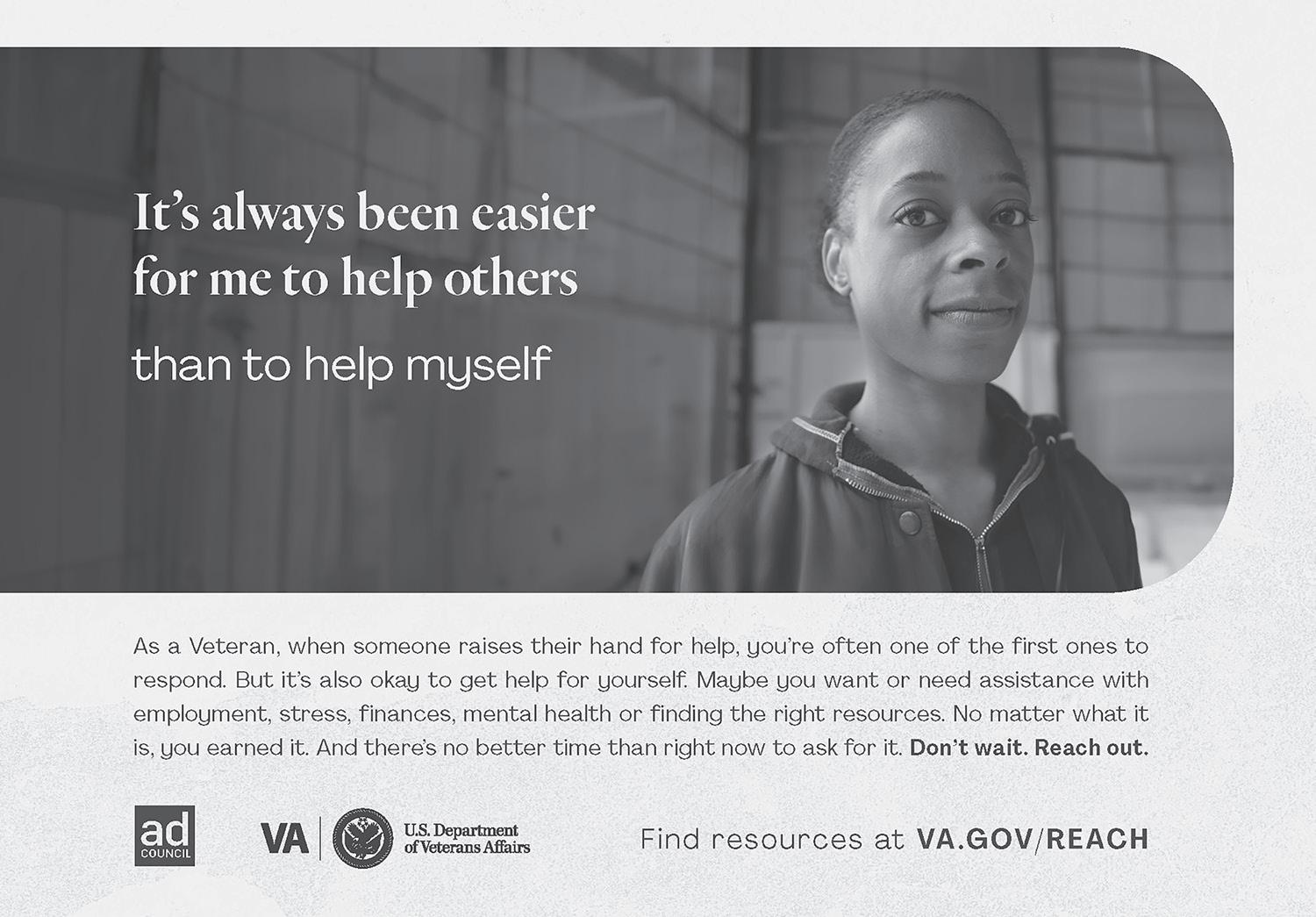LITTLE AFRICA FESTIVAL STILL GOING STRONG
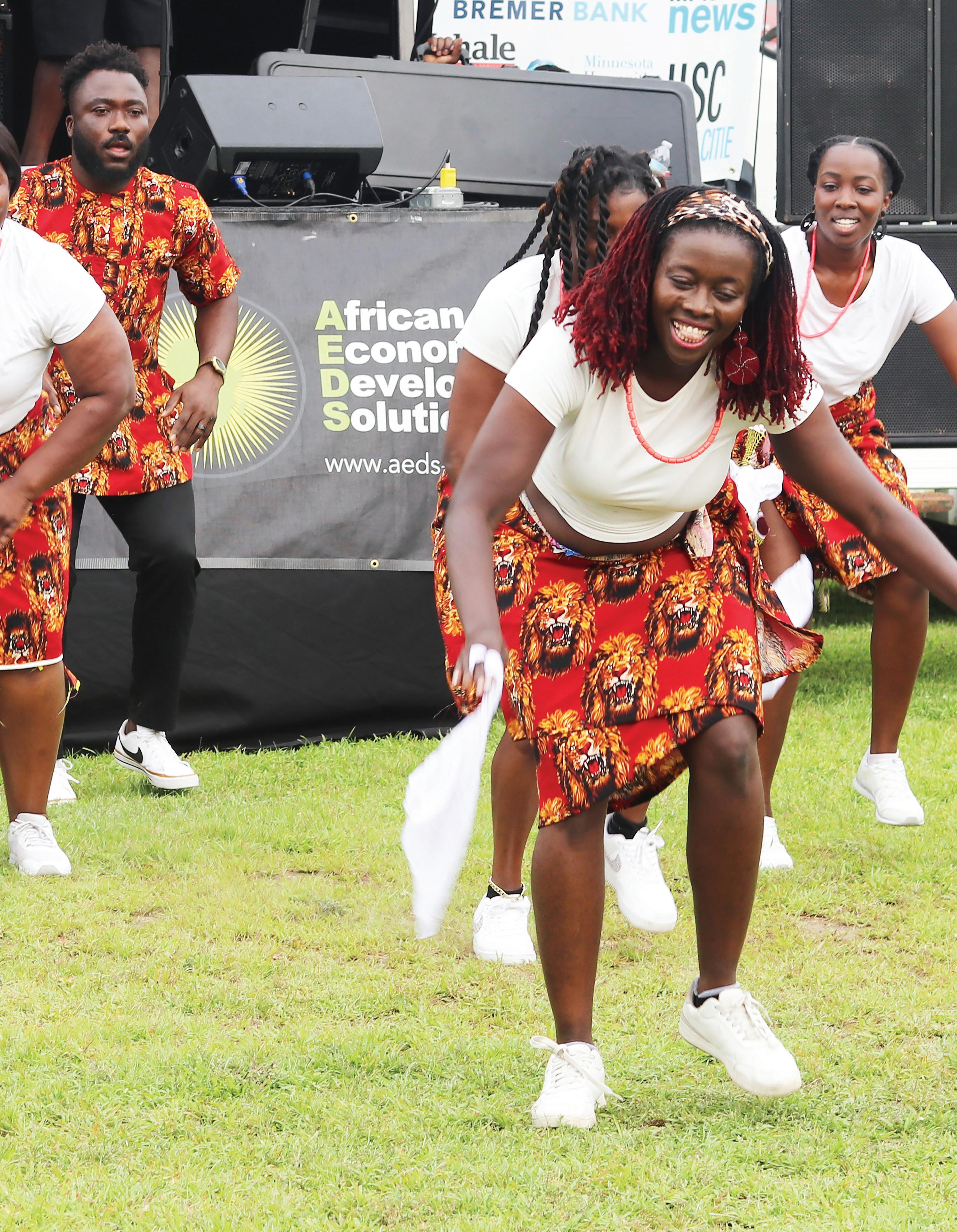



By Cynthia Simba Mshale
The Little Africa festival returned to St. Paul for the 11th year, as members from African communities came to showcase their cultures and support their businesses.
“It means a lot to me because it brings together different cultures, awareness, businesses,” said Ugandan-
born John Kisekka. “There is plenty of food. I encourage all Africans to come meet, socialize, make new friends, and engage in business.”
Kisekka, a deejay who professionally goes by the name of DJ Johnie, said that he hoped the festival achieves the goal of celebrating and raising awareness for African cultures in the Twin Cities. He moved to the United States from Uganda more than two decades ago
and began working as a deejay not only as a means of earning money but also to promote African music.
The festival, which was organized by African Economic Development Solutions (AEDS) to promote African culture and business in the Twin Cities, took place on Aug. 3, in Saint Paul at Hamline Park near Little Africa Plaza. Multiple streets in the area were closed to vehicles giving festival goers plenty of space to explore the dozens
of vendors, small businesses, and community organizations representing various nationalities from both the African continent and the diaspora.
The event opened with a parade, followed by a performance by Kalpulli Yaocenoxtli, a Native American dance group dedicated to preserving indigenous culture through dance.
Little Africa Cont’d on Pg. 6

Every town hall, policy hearing, and community roundtable on the future consistently ignores one group: our youth.
We speak about their future, legislate around their needs, and implement policies that will directly shape the trajectory of their lives—but rarely do we fully invite them into the room. And even when we do, it’s often symbolic. A token seat, a moment at the mic, a photo op for the press. That isn’t inclusion. Its performance.
Let’s be clear: the youth voice shouldn’t be optional. It should be mandatory.
Young people aren’t just observing the consequences of today’s decisions—they’re living them. They ride overcrowded and sometimes unsafe school buses. They sit in classrooms impacted by teacher shortages and crumbling infrastructure. They grow up in communities where access to healthy food, affordable housing, and stable internet remains inconsistent. Many witness their families struggling with the rising cost of living, gun violence, and health care disparities. They feel the effects of climate change not in theory, but in their everyday lives—through record heatwaves, flooding, and school closures.
And yet, when it comes to shaping the policies that address these challenges, youth are too often told to “wait their turn,” as if civic responsibility and political voice have an age restriction.
The truth is, young people already have the passion, the clarity, and the power to lead. What they lack is access.
We must stop treating youth engagement as a feel-good checkbox or a public relations gesture. When students organize national walkouts demanding safer schools, when teen activists speak at climate summits or testify before Congress, and when young entrepreneurs launch nonprofits and tech solutions to tackle inequality, they are modeling exactly the kind of leadership we say we want—not someday, but now.
Real youth leadership across the nation
Across the country, young people are stepping up—and making a measurable impact:
In Chicago, youth involved in the Mikva Challenge have helped shape city budget priorities and criminal justice reform through youth policy councils embedded in government.
In Oakland, student organizers successfully lobbied for the elimination of school police, leading to a reinvestment in student support services and restorative justice programs.
In Florida, the March For Our Lives movement—founded by high school students in the aftermath of the Parkland shooting—has transformed national conversations on gun safety and led to new state and federal legislation.
In Alaska, young Indigenous leaders are pushing for climate justice and land protection, blending traditional knowledge with modern advocacy.
These aren’t fringe examples. These are proof points that when we empower youth with tools, access, and decision-making authority, everyone benefits.
As 17-year-old activist Naila Williams of New York said during a youth policy summit, “We are not the leaders of tomorrow. We are the leaders right now. Tomorrow isn’t promised—but our futures are already being negotiated.”
What the data shows
According to the Center for Information and Research on Civic Learning and Engagement (CIRCLE) at Tufts University:
Communities that actively integrate youth in decision-making—through school boards, advisory councils, or participatory budgeting—see higher civic engagement, better school attendance, and more equitable policy
outcomes.
In Takoma Park, Maryland, 16- and 17-year-olds were granted the right to vote in municipal elections, and in the first year, they turned out at twice the turnout rate of older voters.
States and districts that invest in youth leadership programs, like California’s Youth Empowerment Commission or Boston’s Youth Council, report stronger trust between youth and government and increased diversity in leadership pipelines.
These outcomes are not abstract. They are the direct result of institutionalizing youth voice—not just inviting it.
Building a culture of youth power
Imagine every city council, school board, and state legislature with a required youth representative—empowered, trained, and given real voting authority. Imagine town halls held at high schools, not just country clubs. Imagine public budgets co-developed by youth and adult stakeholders. This isn’t a radical vision. It’s what authentic democracy should look like.
Youth engagement must be woven into the structure of our institutions: government, philanthropy, nonprofits, media, and business. That means funding leadership training, creating pathways from classrooms to boardrooms, and ensuring youth can serve on commissions, task forces, and legislative bodies—with pay, mentorship, and real influence.
This also means rethinking how we define expertise. Experience is not just something gained over decades— it’s also lived daily by the 14-year-old facing housing insecurity, or the 19-year-old leading a climate strike, or the 16-year-old navigating mental health care for themselves and their peers. These experiences deserve weight in decision-making rooms.
The stakes are too high to exclude the youth voice
As someone who has worked in education, run after-school programs, and partnered with youth nationwide, I’ve seen firsthand the brilliance and urgency that young people bring when given the space to lead. I’ve also seen how often that brilliance is overlooked because of outdated hierarchies, adultism, or fear of disruption.
But disruption is exactly what we need.
This is not about giving young people a seat at a table we’ve already set. It’s about rebuilding the table with their leadership as part of its foundation.
The issues facing our country—economic inequality, gun violence, climate change, and the erosion of democracy—are too urgent for incrementalism. If we want real, sustainable, forward-thinking solutions, we need to listen to those who will live with the consequences of every decision we make.
Young people are ready. They’ve been ready. The only question is: Are we ready to follow their lead?
It’s time we stop treating youth engagement as a luxury, a side project, or a one-time grant-funded initiative. The youth voice isn’t charity. It’s not extra. It’s a necessity.
Anthony Tilghman, founder of Anthony Tilghman Enterprises, is an award-winning photojournalist, mentor, author, and educator with expertise in photography, marketing, and branding.

By Tom Gitaa Mshale
The Ames Center’s 1,000 seat main theater in Burnsville which on a regular basis hosts theatrical plays and concerts – such as the “Takin’ It To The Limit” EAGLES tribute” next month –was filled to capacity on Sunday, but it wasn’t a play or concert that Kenyan Americans drove hours to see.
A Kenyan presidential candidate, Dr. Fred Okeng’o Matiang’i, was in Minnesota for a two-day visit and Sunday evening was the climax of it all with a free event to address the large Kenya community in the state. The night before, over 200 turned out for a $250 per person dinner at the Brooklyn Park Marriot and a few dozen showed up Sunday for a ‘By Invitation Only’ $1,000 per person breakfast at the sprawling home of a Kenyan American in Maple Grove.
They came wearing his face on their chests, waved Kenyan flags, chanted his name and danced to patriotic songs at the urging of Mr. James Gichana of Egesa FM, who revved up the crowd as they awaited the arrival of their special guest. Gichana, a popular radio host in the vernacular radio station, has been a constant presence in the latest iteration of the Matiang’i diaspora roadshow.
Kenyan presidential elections are not until 2027, but the citizens of east Africa’s economic powerhouse got buyer’s remorse less than two years after electing President William Ruto in a disputed election. Ruto won by just 233,000 votes out of over 14.3 million that were cast, foreshadowing his unpopularity that came in quick fashion. A popular youth revolt against high taxation and corruption dubbed the “Gen Z Protests,” almost toppled his fragile government last year with an angry citizenry storming parliament forcing members, except for one, to flee through an underground tunnel.
Ruto being “the most hated man” in the country has put the country in the mood for change as the cost of living has increased by most metrics since he took office, and he has also become more autocratic. This has led to an earlier than usual campaign and the emergence of candidates hoping to limit him to one term. It is not a horse race yet, but three candidates are considered frontrunners – Dr. Matiang’i; immediate former deputy president Mr. Rigathi Gachagua and the country’s former vice president Mr. Kalonzo Musyoka.
Remittances to Kenya by its diaspora hit a record 4 billion dollars in 2023, with most of it coming from the United States. Presidential campaigns in Kenya, especially those not enjoying incumbency, have a diaspora outreach unit as part of their campaign toolkit. They are a source of both campaign funds – like the two fundraising events held by Matiang’i in Minnesota – but even more importantly, they command significant influence with kin and friends back in Kenya.
Over 3 million Kenyans live in the diaspora, according to the International Organization for Migration, a UN agency. The United States accounts

for the largest single bloc of them at close to 157,000 (5%) – which many believe to be an undercount – and Minnesota is one of the largest states with Kenyans at close to 20,000.
Out of the three candidates, Matiang’i is the first to bring his campaign to Minnesota. Him and Gachagua have
been in the U.S. for the last few weeks, visiting various states with large numbers of Kenyans. Dr. Kefa Otiso, one of the speakers at Sunday’s event said Minnesota is one such state. Otiso is a professor at Bowling Green State University where he does research on urban and economic geography with, an expertise in remote sensing and

geoinformatics (GIS) applications.
Otiso urged a future Matiang’i government to give Kenyans in the U.S. what they need, which is “more consulates and more voting centers as the majority of Kenyans live here in the middle, the Midwest, at least in these eight cities.” He named cities that are deserving of a consulate in the order of their population strength (of Kenyans) with the Minneapolis/St. Paul metro at the top followed by Dallas, Seattle, Atlanta, Chicago, Boston, Kansas City and Columbus, OH. Kenya has an embassy in Washington DC and a consulate in Los Angeles and New York.
Chanting “you are the 6th”, referring to Matiang’i as the sixth president, the crowd welcomed him with cheers and applause as he took to the podium to give his much-anticipated address.
Matiang’i, a former interior minister, presented himself as a man of action and a great supporter of the diaspora and their aspirations, praising them as Kenya’s greatest ambassadors.
“We cannot only have your money without your voice, we must now have your voice,” he said.
He said he also supports the establishment of up to 20 polling centers for Kenyans in the U.S. to vote in the upcoming 2027 elections where he is expected to be on the ballot, revealing that he is already working with diaspora leaders that are lobbying to make it a reality.
“Let me ask you a question, sometimes we also have to be serious. I think that’s what frustrates me about what is happening in our country. How do you expect someone to fly from Houston to go and vote in Washington?” he said. “Honestly, does it make sense? Let’s be serious.”
Kenyans in the U.S. can only vote


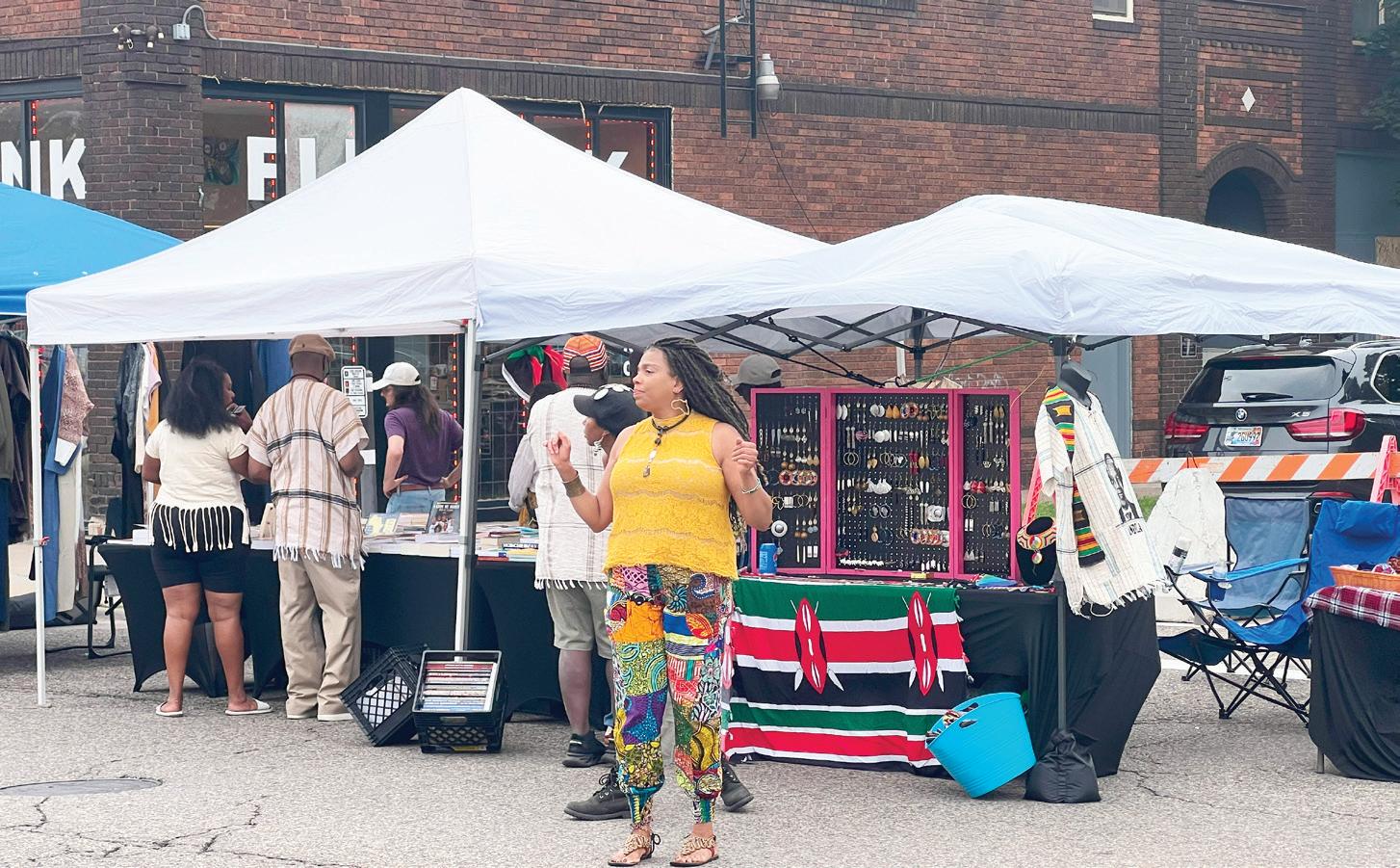
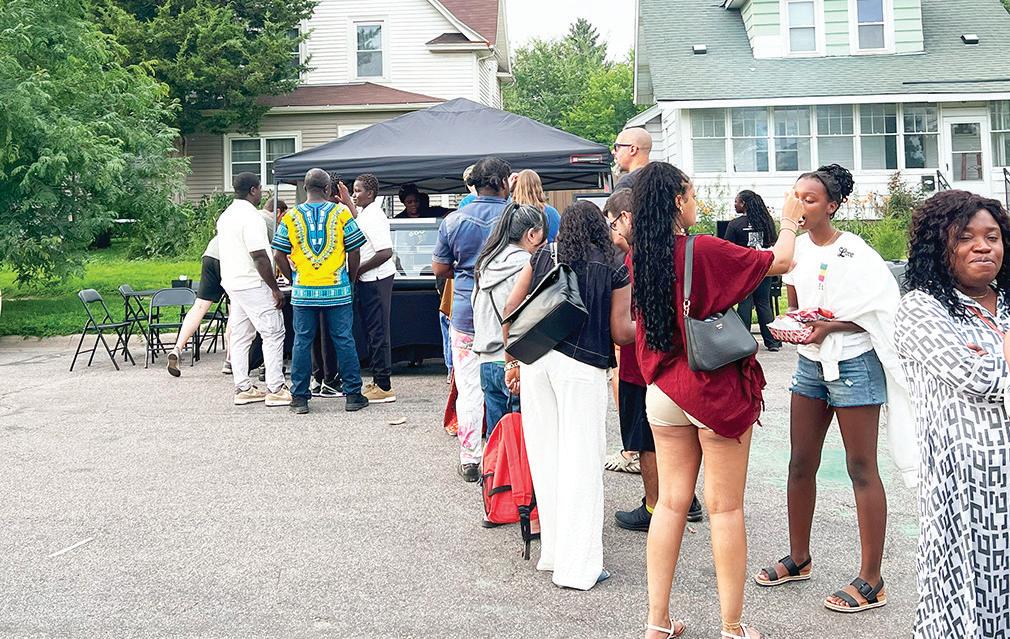
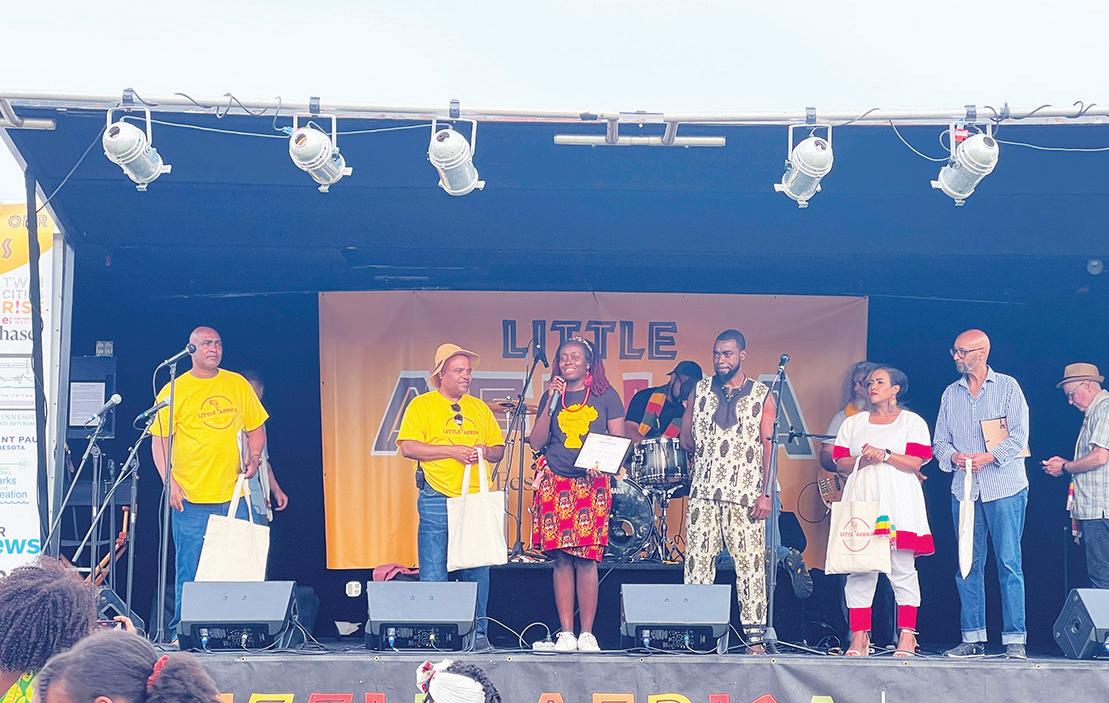
Starting the performances with the group was special homage to the rich Native American culture that preceded the United States.
The event hosted lots of vendors and food trucks where hundreds of festival goers sampled foods from various African cultures as well as fusion meals and drinks from around the world. Attendees could purchase jollof rice, Jamaican jerk chicken, lemonade, Asian bubble tea, as well as matcha lattés from a newly established pop-up café owned by a first generation Ethiopian American.
The women from Mama’s Market and Deli, also performed an Ethiopian coffee ceremony which involved roasting, brewing, and serving coffee in three rounds. Mama’s Market and Deli is one of the newest small businesses to open inside Little Africa Plaza with the help of AEDS. The market is owned and operated by nine immigrant women and offers deli sandwiches, smoothies, and Ethiopian specialty coffee, among other items.
African immigrant business ownership has increased drastically in recent years, doubling between 2017 and 2022. The growth has been fueled in part by organizations such as AEDS and the African Development Center, which have been committed to sharing resources and securing business loans for new ventures. With increased access to funding and business education, African-born entrepreneurs and their descendants have established enterprises to meet the needs of their communities.
The population of Minnesotans who identify as African has increased

in the past several decades. The increase in mainly attributed to the arrival or Somalis and Ethiopians, most of who came as refugees. There are also significant populations of Kenyans, Liberians, and Nigerians.
But the festival didn’t attract only
people with direct ties to Africa. Milwaukee transplants and St. Paul residents, Carrie Cattlett and Luke Jacobs came to the event because they live in the area and wanted to support one of their favorite local businesses.
“This is literally in our neighborhood,” Cattlett said.
“Mama’s market is right next to our house, and we love them,” Jacobs said. “So, we wanted to come here and support them and also see everything else that the African festival has.”
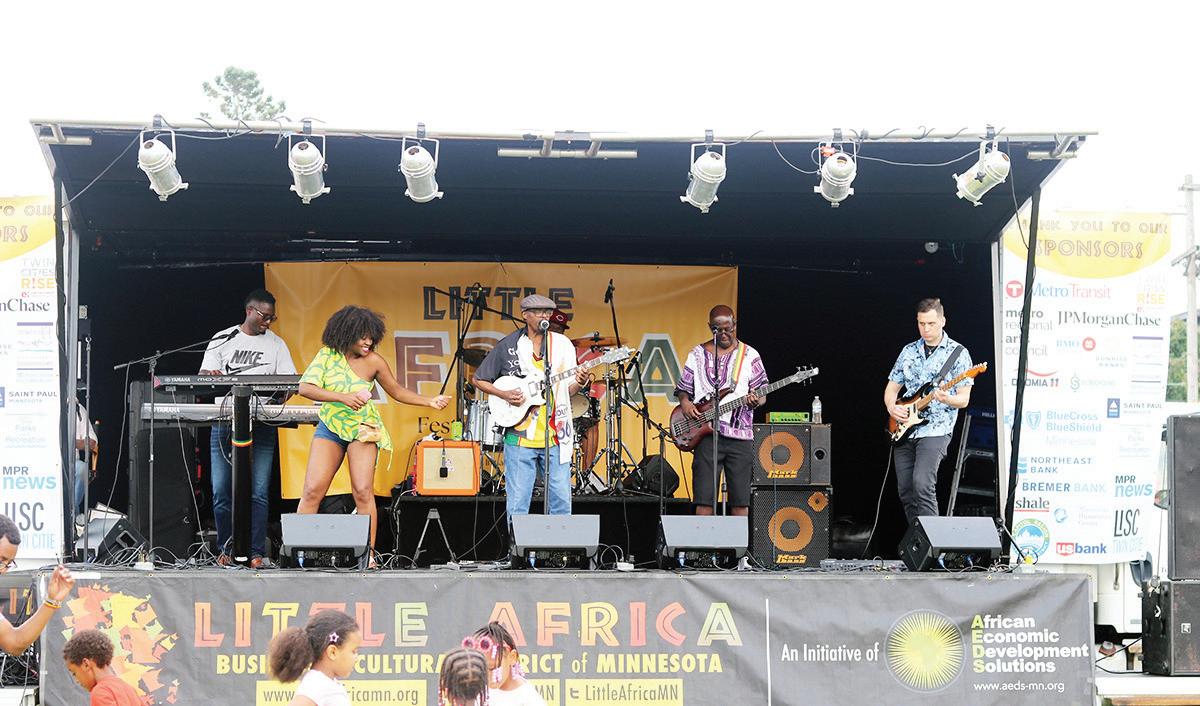



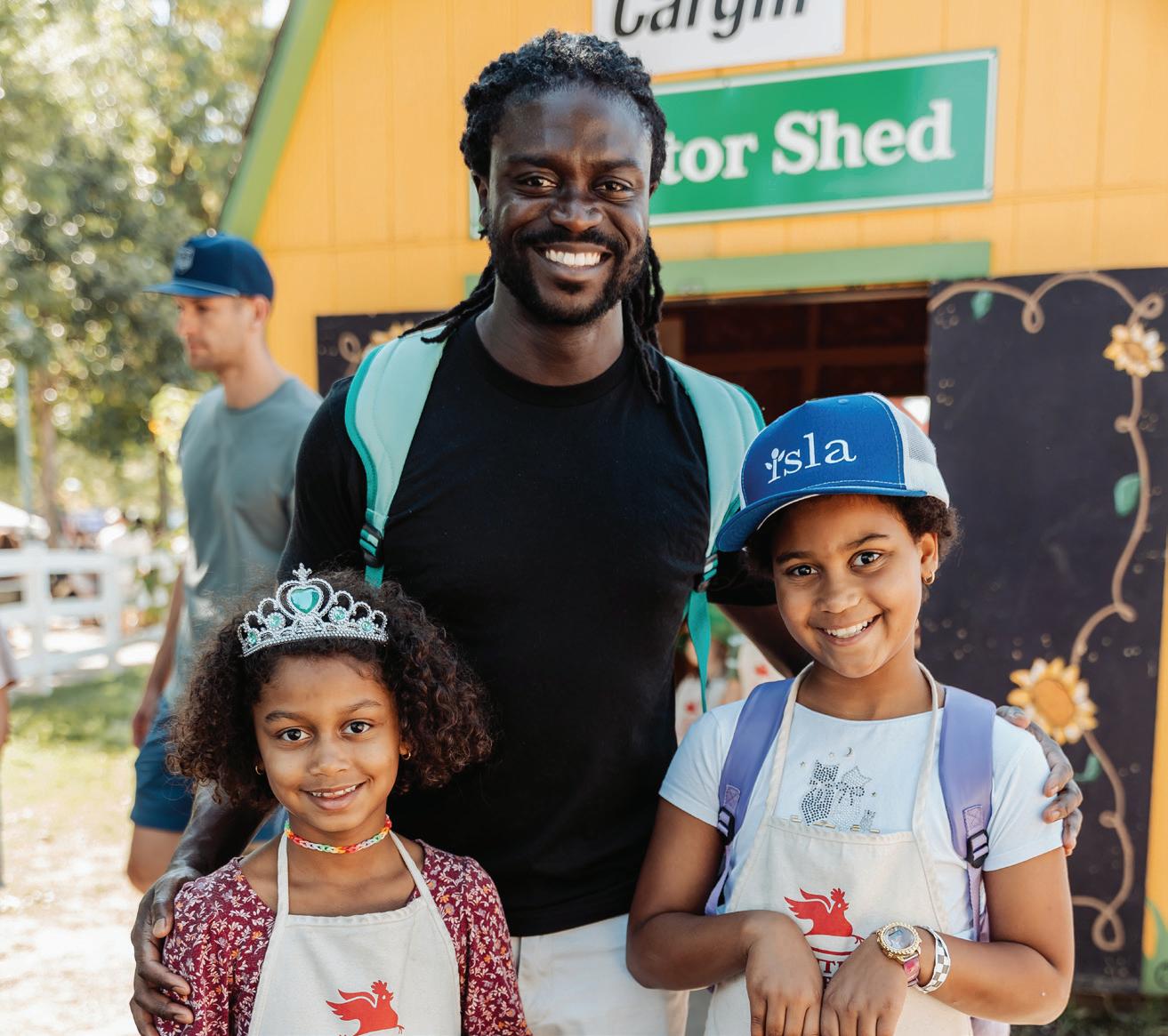


at the embassy in Washington, or the New York and Los Angeles consulates. The diaspora has pushed the electoral body in charge of elections to scrap the requirement that only consular locations can serve as polling places, and instead bring voting locations to areas with large numbers of Kenyans.

In the 2022 presidential election for instance, a paltry 744 were registered as voters at the Washington embassy and two consulates combined.
Matiang’i criticized recent talk from key members of the Ruto regime about
ending universal free primary education that was enacted by the country’s third president, Mwai Kibaki, a move that won the country global acclaim. He termed such talk as regressive.
“One million kids went to school. One million. In fact, you have seen the clip doing rounds where President Clinton says that if there is one person he wished to meet that time, it was President Kibaki,” he told the crowd. “What we have in our country is government by excuses.”
Matiang’i offered he will be a great steward of the Kenyan economy saying that the economic mismanagement and heavy taxation is making many lose their minds.
Prior to Dr. Matiang’i speaking, four GenZ youth were given a chance to address the audience, with one of them pointing out the mental health challenges Kenyan youth are facing.
Matiang’i, who at one time served as the minister for education, opined some of the mental health issues can be addressed by fixing broader societal and governance issues
“Half of the reasons why we have mental health problems in our country is because of the ecosystem and environment in which we live. If you graduated six years ago, you have no job, your brother has no job, your sister has no job, your mom has no job, your father is earning a miserable salary, paying a house you will never go into. How would you remain sane? How would you remain sane?” he said. “That’s why we have these challenges. The young people are going through these issues because of the
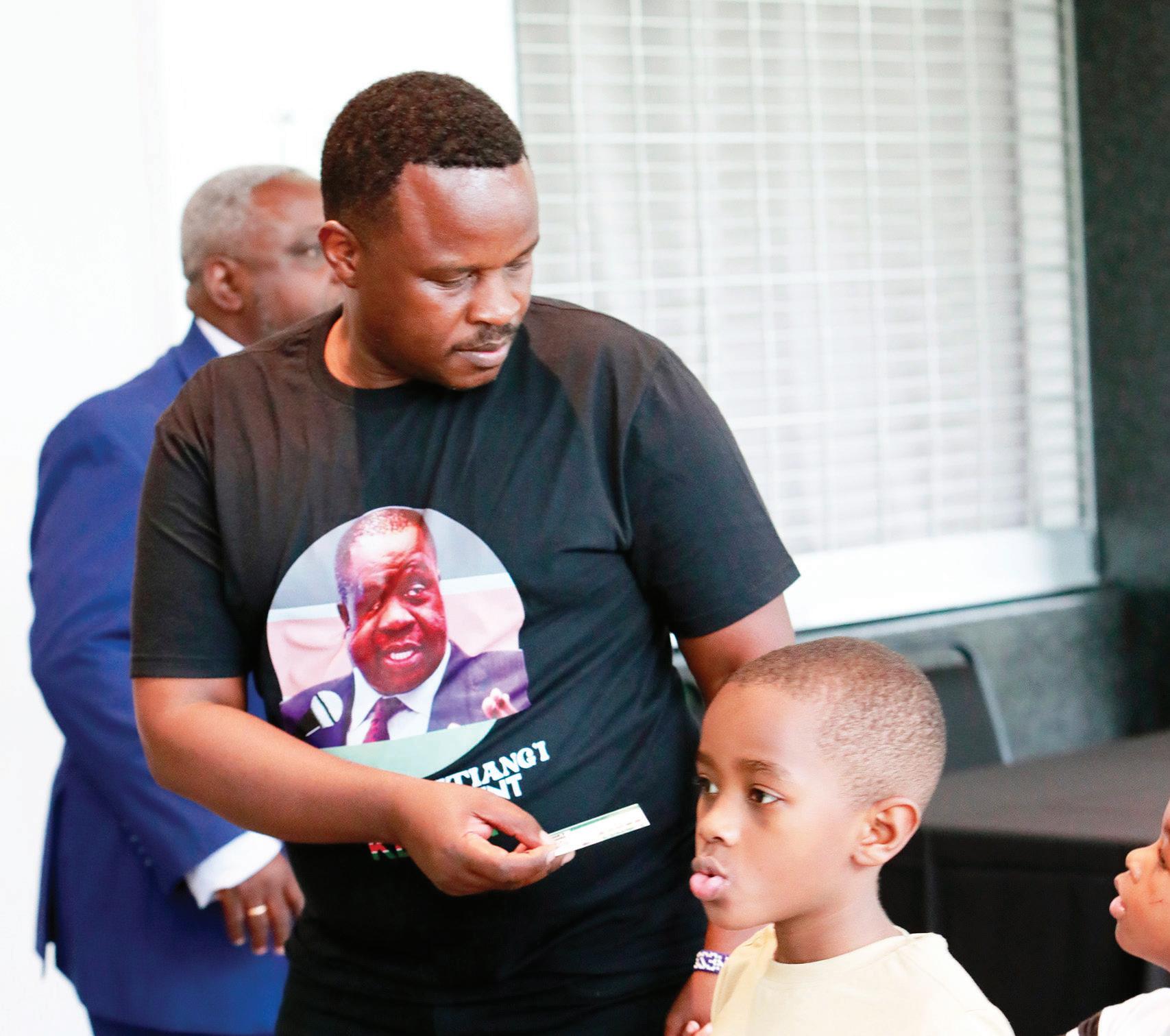
challenges we have in the country.”
Mr. Charles Chesumbai, a realtor from Shakopee, said he came with an open mind but at the end of the meeting told Mshale he is very excited for a potential Matiang’i presidency, because the former minister doesn’t come across as a “typical politician.”
“He is a very honest person, he is more of a civil servant that is into service delivery which is what we want in the country,” he said. “He is not like these politicians that come here and all they talk about is politics and not how we can fix things.”
Others however did not need any convincing from Dr. Matiang’i, as they already view him as the country’s next president. They were just there to meet and cheer him on.
“I came to see the sixth, I am so impressed by him as I see there is light at the end of the tunnel, and feel he will be the one to help us fight corruption and the problems our country is facing right now” said Ms. Naomi Maangi, a psychiatric nurse practitioner who lives in Ramsey.
Two ladies that were in conversation with her before our interview listened in and nodded in agreement.

By
(RNS) — The Evangelical Lutheran Church in America elected its first Black leader on Wednesday (July 30) at its churchwide assembly meeting in Phoenix.
The Rev. Yehiel Curry, bishop of the ELCA’s Metropolitan Chicago Synod since 2019, will serve a six-year term as the denomination’s presiding bishop, the top leadership role. He succeeds Elizabeth Eaton, who has served two terms as presiding bishop.
The 2.7 million-member Protestant group also passed a strongly worded resolution calling on members “to petition U.S. leaders to recognize and act to end the genocide against Palestinians, halt military aid to Israel used in Gaza, and support Palestinian statehood and U.N. membership.” The resolution, called a memorial, passed overwhelmingly, 742-38.
Other Protestant groups have weighed in with statements calling Israel’s actions in Gaza a genocide. The United Church of Christ, which met earlier this summer, passed a resolution for an end to genocide. The Christian Church (Disciples of Christ) last year wrote a pastoral letter that said, “What Palestinians are experiencing is nothing less than genocide.”
The ELCA has sister groups in the embattled region: the Evangelical Lutheran Church in Jordan and the Holy Land, and the World Council of Churches/ Ecumenical Accompaniment Programme in Palestine and Israel. The Lutheran World Federation operates Augusta Victoria Hospital in Jerusalem, which provides care for Palestinians in the West Bank. One of the strongest critics of Israel’s assault on Gaza is Palestinian pastor Munther Isaac of the Evangelical Lutheran Christmas Church in Bethlehem.
The assembly also passed a statement acknowledging its complicity with Indian boarding schools. It commits the church to observing the National Day of Remembrance for Indian Boarding Schools annually and developing educational programs and materials surrounding the history and ELCA’s involvement in the government policy that abducted Indian children and then placed them in church-run schools where they were denied their Native prac-

tices and abused when they spoke their Native languages.
Curry, who is 52, was elected on the fifth ballot during voting on the floor of the Phoenix Convention Center. He received 562 votes out of 799 votes cast.
He has been serving a synod or regional church group of 165 congregations in the Chicago area.
He spoke to the assembly about his initial hesitation in accepting a calling to ministry.
“I never saw myself as good enough,
so for two years, I said no,” Curry said. “I finally said yes. When I said yes, your support, this church’s support, of that ministry meant everything. So if you want to know what your benevolence dollars look like, it looks like me. And I want to say thank you. Thank you for your investment.”
He previously served as pastor of Shekinah Chapel Lutheran Church in Riverdale, Illinois, and as mission developer at the church, which is predominantly Black.
Curry grew up Catholic on the South Side of Chicago and became a seventh
grade public school teacher and later a social worker. An unexpected invitation to a worship service in St. Stephen’s Lutheran Church, back in the 1990s, led him to discover a calling to ordination.
He earned a Bachelor of Arts from Lewis University in Romeoville, Illinois, in 1995 and a Master of Divinity in 2013 from the Lutheran School of Theology at Chicago, one of seven ELCA seminaries.
He and his wife, LaShonda, are the parents of three daughters.

By Afropop
Our friends at DKC News just posted this exciting news...
Apple Music has revealed that over 200 artists from the African continent have charted on the Shazam Global Top 200 chart over the past year.
In addition, 12 African songs have reached the Shazam Global Top 10: “With You (feat. Omah Lay” by Davido; “Venus” by Faceless & Serøtonin; “Show Me Love” by WizTheMc; “Shake It To The Max (FLY) [Remix]” by MOLIY, Silent Addy, Skillibeng & Shenseea; “NINAO” by GIMS; “Ngishutheni” by Goon Flavour, Master KG, Eemoh; “My Darling” by Chella; “Laho” by Shallipopi, “Ka Esi Le Onye Isi Oche” by Gentleman Mike Ejeagha & His Trio; “Joy Is Coming” by Fido; “Funds” by Davido feat. ODUMODUBLVCK & Chike; and “Biri Marung (feat. Sje Konka, Focalistic, DJ Maphorisa, Scotts Maphuma & CowBoii)” by Mr Pilato, Ego Slimflow & Tebogo G Mashego.
Three songs have hit the top spot of Shazam’s Global chart: “Shake It To The Max (FLY) [Remix]” by MOLIY, Silent Addy, Skillibeng & Shenseea; “My Darling” by Chella, and “Biri Marung (feat. Sje Konka, Focalistic, DJ Maphorisa, Scotts Maphuma & CowBoii)” by Mr Pilato, Ego Slimflow & Tebogo G Mashego
“These insights are not only a testament to the incredible talent that the continent has to offer, but
reflect the key role that Shazam has played in surfacing African music to a global audience,” says Apple Music’s Ole Obermann. “Africa has become a force in setting the standard for today’s most contemporary and innovative sounds, and Shazam users are embracing these songs as they begin their journey to becoming global hits.”
“Shazam has been an important music tool for me, helping me connect with people around the world and letting them discover my sound,” Nigerian singer-songwriter Chella tells Apple Music. “’My Darling’ got picked up by many on Shazam, and that pivoted my career shift positively.”
“It’s been incredible to see how far ‘Shake It to the Max’ has travelled,” Ghanaian-American singer-songwriter Moliy says. “We’re number one in command globally, and Shazam has played a huge part in making that possible. To know that people all over the world are hearing the song, pulling out their phones to find out who I am–that’s wild! It’s taken my music to places I’ve never been and helped me connect with fans from the Caribbean, Latin America, and Europe. I’m so grateful.”
With more than 300 million global monthly users and over 100 billion global song recognitions since its launch, Shazam’s unique ability to accurately predict the next breaking artist and trends is unparalleled and has become a reliable and invaluable discovery tool for both artists and fans over the years.
Here are the Top 10 African Songs on the

Shazam Global Top 200 over the past year:
*1 July 2024 to 30 June 2025
Shake It To The Max (FLY) [Remix] - MOLIY, Silent Addy, Skillibeng & Shenseea
Biri Marung (Edit) [feat. Sje Konka, Focalistic, DJ Maphorisa, Scotts Maphuma & CowBoii] Mr Pilato, Ego Slimflow & Tebogo G Mashego
My Darling - Chella
Show Me Love - WizTheMc & bees & honey
Calm Down - Rema
PUSH 2 START - Tyla
NINAO GIMS
Water - Tyla
With You [feat. Omah Lay] Davido Jealousy [feat. Leemckrazy & Ceeka RSA] - Khalil Harrison & Tyler ICU
The African countries with the most entries included Nigeria, South Africa, Tanzania and Ghana.
